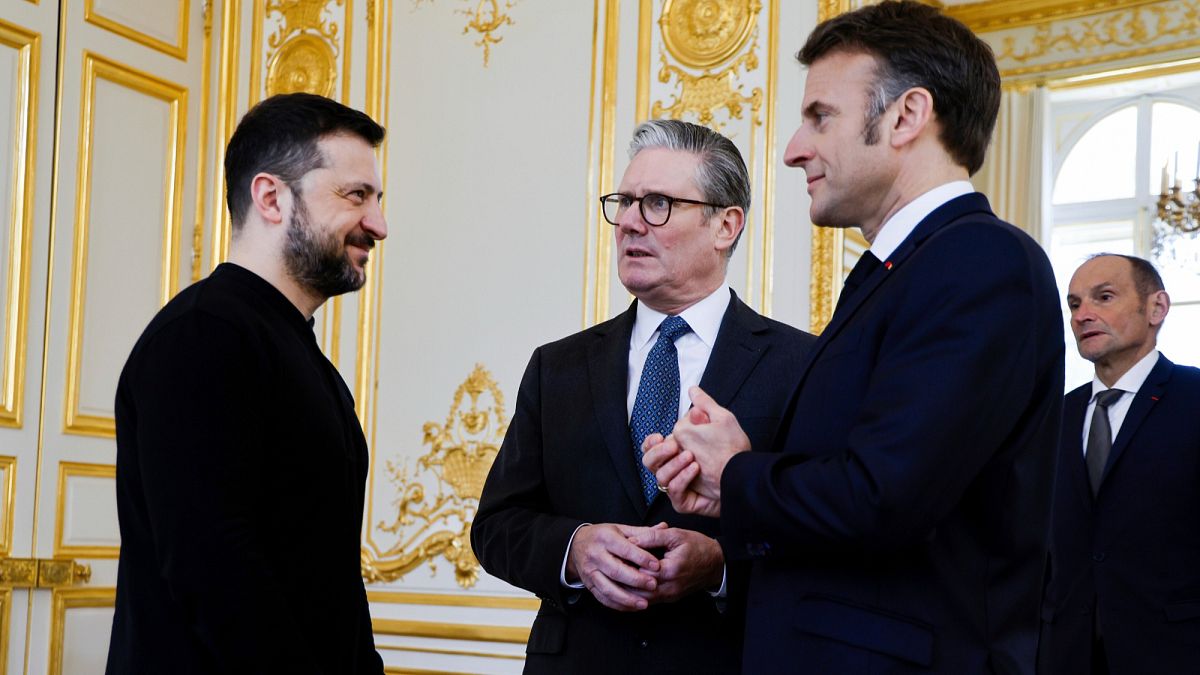Defence ministers from the so-called “coalition the willing” will gather at NATO on Thursday afternoon to discuss which capabilities they can provide to support Ukraine’s defence in the event of a peace deal with Russia, but once again without US participation.
Ministers from 30 countries will join the meeting convened by France and the UK for operational discussions to set up a reassurance force for Ukraine that is meant to act as a deterrent against potential Russian aggression.
The meeting comes after a delegation of French and British military officials travelled to Kyiv for meetings with Ukrainian President Volodymyr Zelenskyy, Defence Minister Rustem Umerov, and the country’s military leaders to discuss planning.
“We cannot jeopardise the peace by forgetting about the war, so we must put even more pressure on Putin and step up our support for Ukraine – both in today’s fight and the push for peace,” UK Defence Secretary John Healey is expected to tell the meeting.
“Our commitment is to put Ukraine in the strongest position to protect Ukraine’s sovereignty and deter future Russian aggression.”
French President Emmanuel Macron, who chaired a summit of leaders late last month on the issue, had said the force could be deployed in “strategic” towns in Ukraine and that the visit to Ukraine by military officials would seek to work out which locations would be best.
But Macron also said that not all of the 33 delegations at the summit had agreed to take part and that contribution would not be limited to air, land and sea forces in Ukraine but would also entail logistics and intelligence capacities.
Poland and Greece, for instance, have said they cannot provide troops to the force, citing the threats they face from Belarus and Turkey respectively.
Another key reservation for some countries, such as Italy, is over the US’s participation.
Most of the countries in the coalition agree that a so-called “US backstop” is needed, with air protection and intelligence sharing among the assistance they hope to secure from Washington.
Macron and his British counterpart, Prime Minister Keir Starmer, have both met with US President Donald Trump and have been in regular contact with him since to keep him updated on the discussions at the European level. But Washington has so far refused to join such a coalition.
The US has also stepped back from the Ukraine Defence Contact Group – otherwise known as the Ramstein group – which it used to chair under the previous administration of Joe Biden. Defence Secretary Pete Hegseth is not expected to take part in the group’s next meeting on Friday, which should be attended by some 50 countries.
Read the full article here


